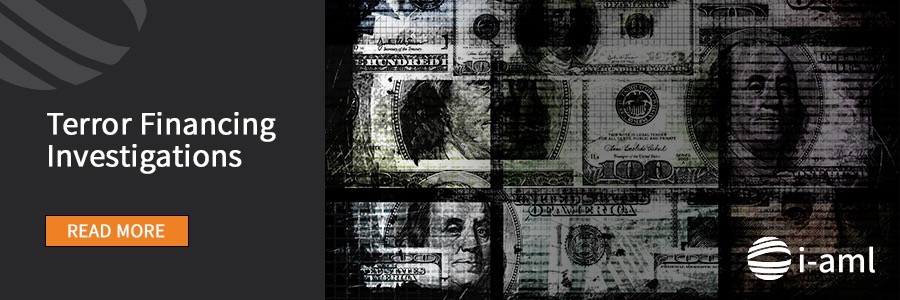The exploitation of non-governmental organisations (NGOs) for the purpose of terror financing is a pressing concern within the realms of global philanthropy and security. Groups like Hamas, officially designated as a terrorist organization by several international authorities, have demonstrated sophisticated methods of channeling funds under the guise of charitable work.
This intricate challenge is magnified by the emergence of advanced technologies such as cryptocurrencies, which complicate the ethical landscape as we understand it—a concern profoundly echoed in Shoshana Zuboff’s work “The Age of Surveillance Capitalism.”
“We have turned a blind eye to this activity [Hamas’ external funding] for more than a decade.” Jonathan Schanzer. Former counter-terrorism financial analyst at the US Treasury Department
Hamas Sophisticated Use of NGOs
Hamas’ operations leveraging NGOs for fundraising are multifaceted, involving the use of digital platforms to exploit the anonymity and versatility offered by the online financial systems. Two significant case studies, the Holy Land Foundation in the United States and Interpal in the United Kingdom, exemplify the cunning manipulation of NGO frameworks to support and sustain their operations.
- The Holy Land Foundation: Once the largest Islamic charity in the United States, the Holy Land Foundation was implicated in channeling funds to Hamas. The 2001 shutdown of the charity by the U.S. government, followed by the conviction of its leaders, unveiled a vast network funneling charitable donations to support Hamas’ social and political endeavors.
- Interpal: This UK-based charity has faced scrutiny over alleged links to Hamas. Despite multiple investigations by the British Charity Commission which cleared it of wrongdoing, the charity remains under observation, reflecting the ongoing struggle to ensure NGO resources do not end up supporting terror activities.
How Hamas gets funded. – Euronews
International Implications and Response
The international community has received a stark warning from these episodes, leading to increased vigilance in NGO operations. The Financial Action Task Force (FATF), while not a regulatory body, provides influential recommendations that guide countries in fortifying their defenses against the misuse of financial systems for terror financing. Despite these efforts, the rapid development of digital financial technologies, particularly cryptocurrencies, presents new challenges in the ongoing battle against such exploitation.
Israel’s role*
Israel has taken a proactive stance on combating terror financing through NGOs. In October 2021, Israeli Defense Minister Benny Gantz designated six Palestinian NGOs as terrorist organizations, asserting that they were linked to the Popular Front for the Liberation of Palestine (PFLP), which is recognised as a terrorist group by Israel, the United States, and the European Union. This move was part of Israel’s broader efforts to disrupt the financial networks that support terrorist activities.
The decision to label these NGOs as terror organisations was rooted in intelligence that suggested their involvement in terror activities. The Israeli government has claimed that these organizations, which present themselves as humanitarian and civil society groups, served as covers for PFLP’s financing and propaganda. According to Israeli officials, these NGOs received substantial funding from European countries and international organizations through methods of deception, and the funds were used to support PFLP’s operations.
Israel’s Ministry of Foreign Affairs has been active in sharing information with other countries to substantiate the connections of these NGOs with the PFLP terror organization. The evidence, according to Israeli authorities, is detailed, pointing to prior connections of these organisations with the PFLP.
Israel’s legal framework for such designations is in line with international law, including United Nations resolutions and conventions that relate to terror activities. For instance, UN Security Council Resolution 1373 obliges states to criminalise the provision or collection of funds intended to be used for terrorist acts. Israel’s Counter-Terrorism Law 5776-2016 empowers the Ministry of Defense to designate a group as a terrorist organization, with provisions for due process, including the opportunity to present arguments against such designations and to appeal to Israel’s Supreme Court.
The implications of these designations are significant as they shed light on the challenges international donors face when providing funding to NGOs operating in conflict zones. There is a risk that funds intended for legitimate humanitarian assistance could be diverted to support terror activities. This situation underscores the importance of rigorous due diligence and monitoring mechanisms to ensure that NGO funding is not misappropriated.
The actions taken by Israel reflect the complex and ongoing struggle to prevent the exploitation of the non-profit sector for terror financing while also navigating the potential political and humanitarian consequences of such designations.
Israel’s Contribution to Strengthen Global Cooperation on AML/CTF
Israel has taken significant steps to strengthen its AML/CTF framework since its 2018 mutual evaluation by the Financial Action Task Force (FATF). The country has made progress in addressing technical compliance deficiencies and is now compliant on 16 of the FATF Recommendations and largely compliant on 19 others. Israel’s AML/CTF system is noted for being effective in many areas, particularly in understanding its risks, investigating and prosecuting money laundering and terrorist financing, and in using financial intelligence to prevent crime. However, there is an emphasis on the need for Israel to focus more on supervision and the implementation of preventive measures.
Regulatory and Ethical Dynamics
In response to these challenges, there is a critical need to:
– Develop adaptable regulations that can respond to the evolving digital financial landscape.
– Maintain ethical integrity in the surveillance of financial transactions, ensuring respect for individual privacy and rights.
– Foster international collaboration to standardise practices aimed at preventing the misuse of NGOs for terror financing.
Strategic Actions and Reflection
In light of these concerns, key strategies might include:
– Implementing rigorous due diligence within the NGO sector.
– Balancing transparency and ethical considerations in financial monitoring.
– Empowering and lobbying international bodies like the FATF to provide up-to-date and actionable recommendations that keep pace with technological advancements and reflect unprecedented scenarios of “sustained war”.
Conclusion
The use of NGOs for terror financing, particularly by Hamas, underscores the need for a concerted approach that is both proactive and reactive. It calls for a forensic level of scrutiny, combined with strategic collaboration across borders, to protect the integrity of global philanthropy from being overshadowed by terrorism.
Reflections:
– How can we enhance the capabilities of international and national bodies to detect and prevent the diversion of NGO funds towards terror financing?
– What steps can be taken to ensure that the pursuit of financial transparency does not infringe upon lawful privacy and individual rights?
These resources provide a foundation for understanding the complex interplay between NGO operations, terror financing, and the necessary global response to this pervasive challenge.
.
By Yael S Simon LLM, Philanthropic Consultant | Global Strategic Partnerships | AML/CTF Arakura Consulting
.
January 2, 2024 Published by The Global Strategic Partnerships.







